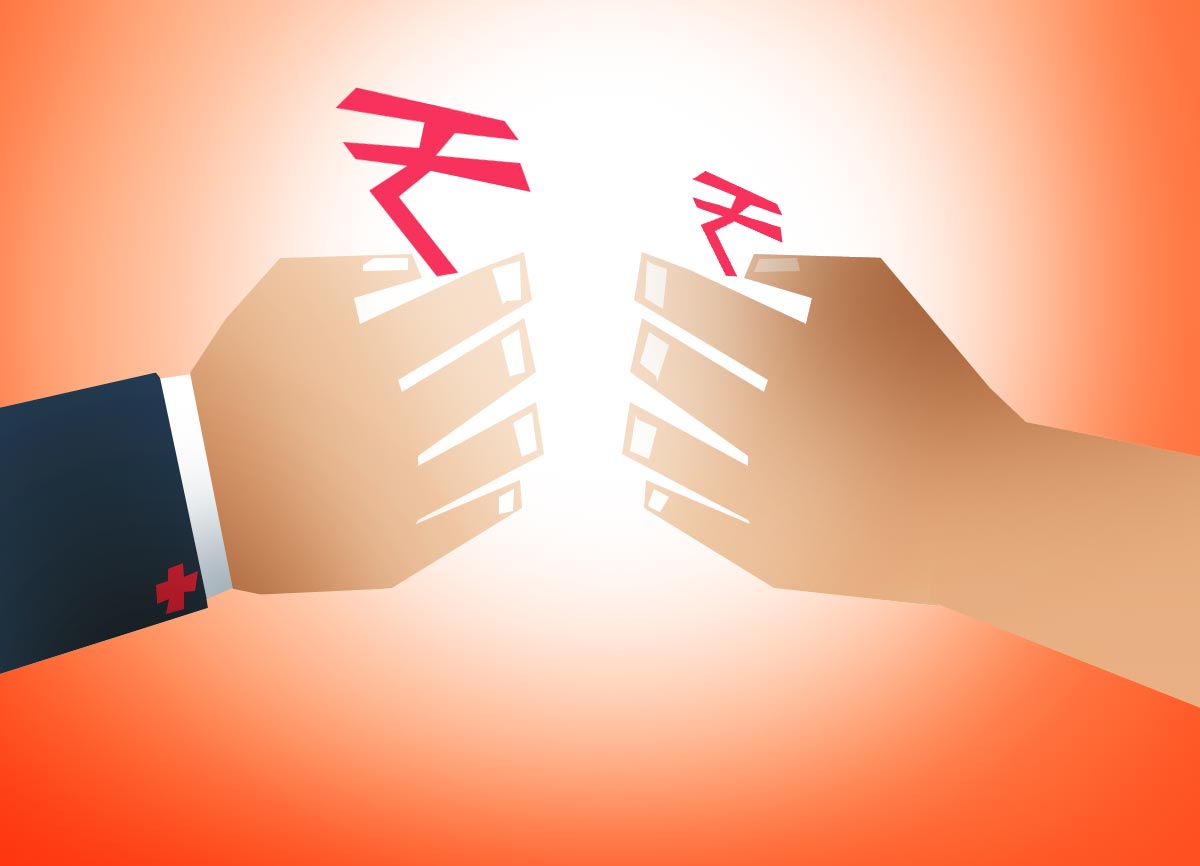Sanjib Jha, CEO, Coverfox Insurance Broking, lists 5 important things to look out for when buying a health insurance policy.
Do you have health or auto insurance queries? Please mail your queries to getahead@rediff.co.in with the subject line 'Ask Sanjib' and he will answer all your health insurance queries.

When you decide that you want to purchase a health insurance policy, you are quite ahead of the curve. Those who are financially intelligent know that health insurance for them and their family is extremely important.
The main advantage of a health insurance policy is that it covers almost 90 per cent of your hospitalisation expenses. Today, we live in the world of cashless health insurance policies.
If you have a cashless health insurance policy, you only have to pay the hospital deposit amount and your insurer coordinates with the hospital and takes care of the medical expenses.
However, buying health insurance should be a well thought affair. You should understand the nitty-gritties of the plan to know its scope and also assess if the plan is the right fit. So, here are 5 important things to look out for when buying a health insurance policy.
1. The coverage
Firstly, check the coverage benefits of the policy under consideration. Ideally, the policy should offer a comprehensive scope of coverage. However, check if the coverage features to suit your requirement.
There is no concept of 'one size fits all' in health insurance. The plan should have the coverage features that you need, whether inbuilt or on an optional basis.
Also, check the exclusion list to know the instances wherein your medical costs would not be covered. This would help you avoid an obvious rejection when you claim excluded coverage.
Another thing to check is the coverage sub-limit, especially the room rent sub-limit. Try and avoid plans with room rent limits as they tend to limit the claim pay-out.
Also check the coverage limits on other features like AYUSH treatments, domiciliary treatments, cataracts, etc. Opt for a plan which has minimal or no limits.
2. Waiting period
A waiting period is the time during which a policyholder cannot file any claims under her/his health insurance policy. Before filing claims, the policyholder has to wait for this period to get over.
A policy's waiting period is normally applicable to various pre-existing ailments like diabetes, blood pressure, heart disease, kidney ailment and even maternity. Generally, you have to wait for 30 days before you can claim for any seasonal illnesses like dengue, malaria, typhoid, pneumonia, COVID-19 and other such diseases.
For the earlier mentioned pre-existing diseases, the waiting period can be anywhere between two to four years.
There is zero waiting period for accident-related treatments.
Hence, it is advisable that you buy the plan with the lowest waiting period.
3. The co-payment clause
Co-payment means paying a part of the claim from your pocket. This constitutes your out-of-pocket expenses and so, you should know about the same.
Health insurance plans usually levy a co-payment for the following two reasons:
- If you are an insured member who is aged 60 years or above when buying the policy.
- If you buy the plan in a lower zone (Tier II or Tier III city) and avail treatments in a higher zone (Tier I or Tier II) city.
To avoid the first clause, you can buy the health plan at a younger age.
The second clause can be avoided by choosing the right policy.
Look for plans that have no zonal co-payments so that you can get higher claim settlements without incurring considerable out-of-pocket expenses.
4. The hospital network
It is a known fact that cashless claims are a more convenient mode of claim settlement. You do not have to put a dent in your savings as the bill is handled directly by the insurer. The paperwork involved is also less.
However, the cashless claim is available only in networked hospitals. As such, it becomes important to check out the insurance company's network. A wider network is better as it allows you to locate a preferred hospital in your city with ease. Also, check if the hospital that you prefer for treatments is part of the network.
5. The concept of utmost good faith
Lastly, and most importantly, remember that insurance policies work on the principle of utmost good faith. This means that you are required to disclose all material information to the insurance company when you buy a policy from it. This information can pertain to:
- Your lifestyle habits -- drinking, smoking or tobacco consumption
- Past claim records
- History of family illness
- Existing health insurance plans
- Previous rejection of a policy or a claim
- Existing illnesses, etc.
This would help the insurer understand the risk in the policy and issue the policy on relevant terms.
If you hide or lie about any material information and the insurer finds the same later on, your policy would stand null and void. This would not only cause claim rejection, but your premiums paid so far would also be forfeited.
Buying a health insurance plan requires some research on your part. It is better to compare the available options and then choose a plan with the most suitable coverage benefits.
This would ensure that your health plan fulfills its objective with which it was. It would also provide the desired financial protection when you need it the most.








